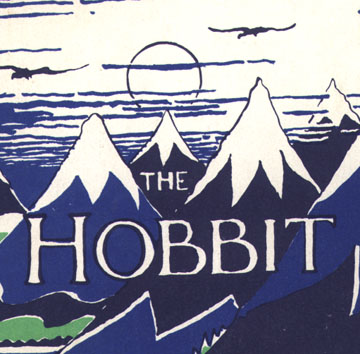It seems like certain ideas come across best if presented in old or friendly ways. Well, probably the best ideas, really, but I admit exceptions for high art.
I’m thinking these days of the C. S. Lewis stories, “The Chronicles
of Narnia.” And the Tolkien stories, too, why not.
All of these tales are told best, first of all, by way of
books—ideally, by way of lovely and specially bound editions, with
leather and gilt and paper that has texture to it and type that sinks
into the paper. This gives you the best possible feel for what’s
being said. Right?
Next best, do your dramatization—and show us what you’ve done by
way of the BBC, say.
The BBC did a TV series of the Narnia stories. Our kids and we check
em out and enjoy them greatly. The library kid says Hey, these are
great stories, not much for special effects, though. Well, I say, we
don’t mind, we just use our imagination. Works well enough. Best, in
fact.
The first Narnia story is a cute one, simple, but based on some good
old ideas. The BBC version of it does it justice. Probably anyone who
has a heart could. Who’s doing it because they love the story.
We went and saw the Hollywood version yesterday at the movie theater.
Sorry, Narnia just doesn’t work if you’re trying to make money off of
it. It’s a hard story to wreck, though, so it was all right. But
still. Kids who are really getting into the parts, who are acting as
simply as the simple original story, even if they’re carrying
cardboard shields and swords, are all it takes. Anything more
basically just detracts.
I’ve heard it said by Hollywood types that the new Narnia movie is a bit wooden or two-dimensional because “the original story is pretty simplistic.” Whups. Shows what they’ve been missing: life. It’s a clean, sparse, leanly written tale that packs a lot in. It has something to say. That isn’t trite or redundant. Hollywood can’t relate.
Then there are the accidentally obvious deep flaws, which are just
painful—it makes me cringe for our whole society to see how our
“best and brightest” only start coming on strong when they’re dealing
in torture and ugliness. Go for it, bossman! The Hollywood Narnia has
a simple air until we get to the villains and monsters—then we
start getting some, oooh!, DETAIL! Same thing happened with the
Tolkien movies. Yeah, go, go, Hollywood—go over the top with your
Evil. You only expose yourself in so doing. If that isn’t the most
obvious lesson of such things. I see this all the time in modern kid
movies—like Antz or Bug’s Life or The Lion King or whatever—the
evil villain is the clever smart one and we get to feel him turning
the screw more than anything else in the rest of the movie. Why?
Because the people who make these movies love hurting people more
than anything else. That’s why working in Hollywood comes so highly
recommended by people of sensitivity and cultivation. It’s a pity we
let them take it out on the kids, though.

